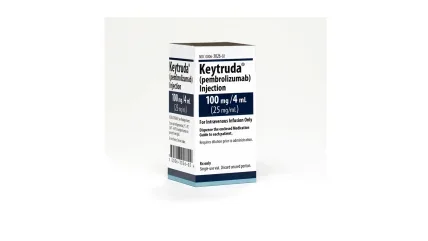
Merck, known as MSD outside the US and Canada, has announced that the European Commission (EC) has approved two new indications for Keytruda (pembrolizumab) for gynaecologic cancers.
The first approval allows Keytruda, combined with carboplatin and paclitaxel, for first-line treatment of primary advanced or recurrent endometrial carcinoma in adults eligible for systemic therapy.
The second approval permits Keytruda, in combination with chemoradiotherapy (CRT), for FIGO 2014 Stage III-IVA locally advanced cervical cancer in adults with no prior definitive therapy.
With these approvals, pembrolizumab is now authorised for 30 indications in the European Union (EU), including five for gynaecologic cancers and three for endometrial cancer and two for cervical cancer.
Merck Research Laboratories global clinical development vice president Gursel Aktan said: “These Keytruda-based regimens have the potential to change the treatment paradigm for people with endometrial and cervical cancer, two of the most commonly diagnosed cancers among women in Europe.
“These approvals underscore the continued expansion of the use of Keytruda in diverse patient populations and treatment settings with utility of Keytruda ranging from earlier lines of therapy to treating advanced disease.”
The approvals are based on the results of Phase 3 KEYNOTE-868 and KEYNOTE-A18 trials. These approvals follow positive recommendations from the Committee for Medicinal Products for Human Use in September 2024.
In the KEYNOTE-868 trial, pembrolizumab combined with carboplatin and paclitaxel demonstrated a statistically significant improvement in progression-free survival (PFS) compared to chemotherapy alone.
In the KEYNOTE-A18 trial, Merck’s anti-PD-1 therapy used with concurrent chemoradiotherapy (CRT) showed significant improvements in overall survival (OS) and PFS for newly diagnosed patients with locally advanced cervical cancer compared to CRT alone.
These approvals permit the marketing of pembrolizumab regimens in all 27 EU member states, along with Iceland, Liechtenstein, Norway, and Northern Ireland.
Merck said the timing for commercial availability of the cancer therapy will vary by country and depend on the completion of national reimbursement procedures.
In June 2024, Keytruda with carboplatin and paclitaxel followed by Keytruda as a single agent, was approved in the US for adults with primary advanced or recurrent endometrial carcinoma.
Additionally, in January, the anti-PD-1 therapy in combination with CRT was approved in the US for FIGO Stage III-IVA cervical cancer.
Merck has one of the largest immuno-oncology clinical research programmes. Currently, over 1,600 trials are investigating Keytruda.






